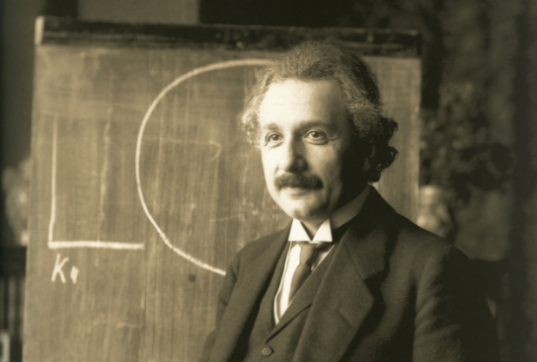Laura AncellSouth of England

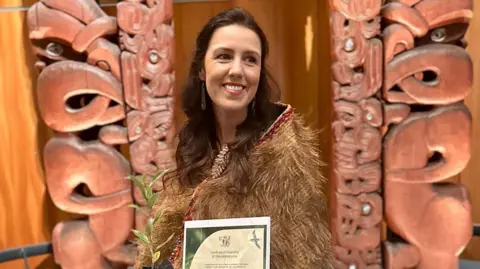 J Ancell
J Ancell
I became a citizen of New Zealand in 2023
A few years ago, I spat into a plastic tube, hoping to learn more about my ancestry.
I didn't expect it would lead to me becoming a citizen of New Zealand.
But I am just one of more than 40 million people to have taken DNA tests, often uncovering more than family secrets – for some, they open doors to new lives abroad.
Inspired to explore the subject further after documenting my own journey on the BBC DNA Trail podcast, I've spoken to people claiming - or trying to claim - citizenship in Ireland, Germany, the US, Italy and New Zealand.
Citizenship matters: it shapes identity, grants rights, and gives access to key services.
If you discover a parent or grandparent was from another country, you might qualify for citizenship by descent.
'I just wanted to know where I came from'

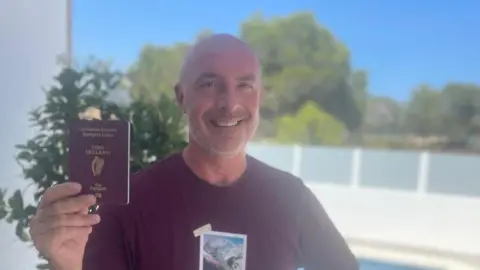 Richard Sayers
Richard Sayers
Richard Sayers discovered that his biological father had been living an hour away from him for many years without either of them knowing
Richard Sayers, from Merseyside, discovered through a DNA test in 2021 that his biological father was Irish, born in Galway.
Raised as an only child by his mum and grandparents, Richard never knew his father.
"I just wanted to know where I came from," the 56-year-old says.
A DNA match with a half-sibling led him to his father, who had no idea he had another son.
With his help, Richard applied to the British courts for a formal declaration of parentage and corrected his birth certificate, which had named a fictitious father.
That opened the door to Irish citizenship and a passport granting him the right to live and work across the EU.
"It felt like such a privilege. I'm proud of my Irish heritage," he says.
Weeks after receiving his new passport, he and his wife sold their home in Formby and moved to La Manga, Spain, with their dog Eddie.
'Growing desire to explore heritage'

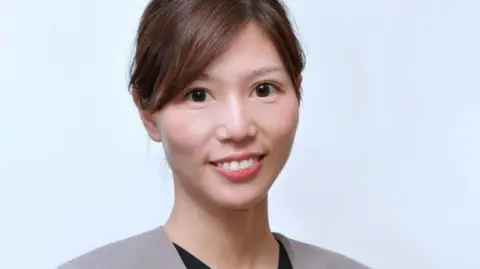 Harvey Law Group
Harvey Law Group
Polly Ho says citizenship by ancestry was rooted in the principle of jus sanguinis, a Latin term meaning "right of blood"
Lawyer Polly Ho says she has seen a "significant increase" in enquiries about obtaining citizenship by ancestry.
"The travel restrictions imposed during Covid-19 led many to truly appreciate the benefits of securing citizenship and a second passport through their ancestry," she says.
In response to this, her firm, Harvey Law, launched the Global Ancestry Index, which ranks countries based on their citizenship policies to try and simplify the often complex process of exploring these options.
And as more people explore their roots, some uncover remarkable histories along the way.
One of those is 53-year-old Leo Hickman, from east Hampshire, who used DNA testing to solve the mystery of his paternal grandfather's identity.
'My grandfather was a German POW'

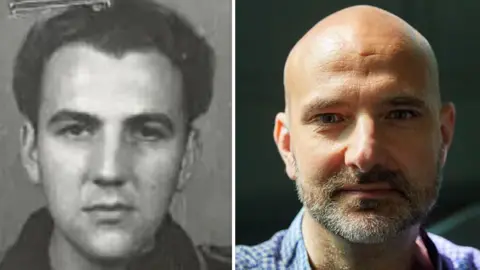 BArch
BArch
Helmut Grell (left) was revealed to be Leo Hickman's (right) grandfather
Genetic results and detective work revealed his grandfather was Helmut Grell – a German prisoner of war captured during the Battle of the Bulge in 1944.
Helmut was held at Camp Butner in North Carolina before being transferred to England, where he was forced to help rebuild the country. He met Leo's grandmother in Buckinghamshire in 1947.
Leo has reconnected with his German relatives and is exploring citizenship through his grandfather.
And he is now looking to challenge a rule that excludes children of unmarried fathers born before May 1949 - like his own - calling the cut-off "seemingly arbitrary" and a barrier to acknowledging his ancestry.
'It's about a deep sense of identity'

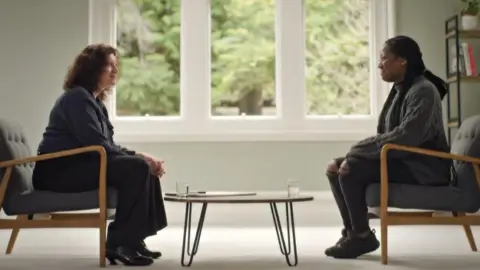 Minnow Films/BBC
Minnow Films/BBC
Prof Turi King (left) met former Team GB Olympian Sarah Claxton (right) for an episode of BBC Two's DNA Family Secrets
DNA evidence is helping people fill in gaps and correct incomplete documentation.
Geneticist Prof Turi King, from BBC Two's DNA Family Secrets, said: "Anyone I help who discovers a parent or grandparent from a different country, all of them have been interested in claiming citizenship.
"It's a belonging to a country as well as a family... ultimately, it seems to come down to a deep sense of identity and who someone feels they are in the world."
But for some, new connections can be complicated.
Former Team GB Olympian Sarah Claxton, 45, from Colchester in Essex, appeared on DNA Family Secrets, where testing revealed her biological father was living in Florida.

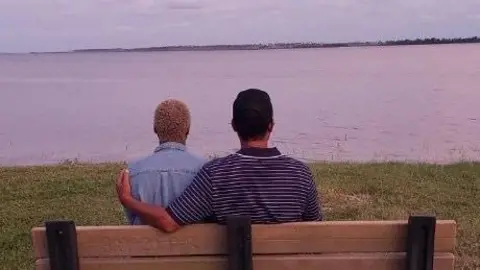 Family handout
Family handout
Sarah Claxton (left) met her biological father (right) for the first time in 2023
Sarah has Native American ancestry and plans to rectify her birth certificate so she can apply for US citizenship.
"I always felt a real sense of connection to America," she says.
"I want to get [citizenship] and maybe live there.
"But there's a lot I am not identifying with... which has been putting me off."
Rules around citizenship can of course change, and President Donald Trump hit headlines recently as he wants to end US birthright citizenship for some.
But as the political and cultural landscape around citizenship continues to shift, some people are turning inward, exploring their own roots to make sense of where they belong.
'Square peg in a round hole'

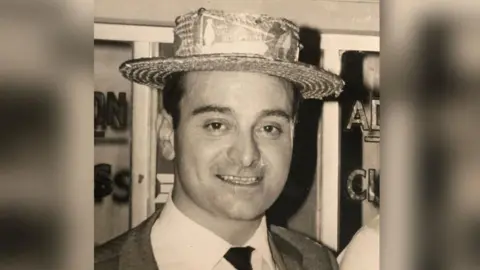 Family handout
Family handout
A DNA test in 2021 revealed Bonny Manzi had fathered a child called Mark, of whom he had no knowledge
Mark, 62, from Oxfordshire, says he grew up feeling like a "square peg in a round hole".
In 2021, DNA testing revealed his biological father was Bonny Manzi, who was of Italian heritage.
"It all just started making sense," says Mark.
Manzi had been a renowned music promoter, working with Shirley Bassey, Van Morrison, The Who, Cream and Pink Floyd.
Mark wrote to him, but two days after sending the letter – before it was opened – his father died.
Until recently, anyone with an Italian ancestor who lived after 17 March 1861 qualified for citizenship under the legal bloodline principle jus sanguinis.
Italy tightened the rules in March – but Mark hopes to still qualify.
"Reconnecting with my Italian roots is really important to me," he says.
He has since built a relationship with his half siblings and says "the jigsaw is now complete".
'Incredibly proud to continue that line'

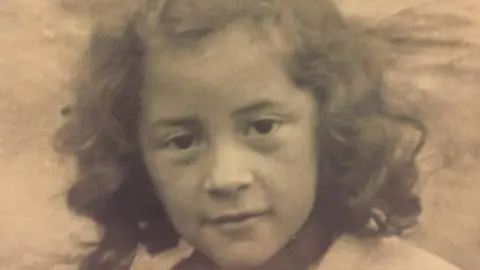 Family handout
Family handout
Lucinda Gillesepie's mother, June Graham (pictured), grew up not knowing her biological father
Using ancestry DNA testing, Lucinda Gillesepie, 48, from Harrogate in North Yorkshire, discovered her maternal grandfather was from Aotearoa – the Māori name for New Zealand.
"My mum spent years searching for her biological father but she had been looking under the wrong name," she says.
DNA testing revealed Polynesian ancestry and that her grandfather had served in the Māori battalion during World War Two.
In 2020, Lucinda met her Māori family, visited her marae (meeting house) and paid respects at her ancestor's graves.
Her mother, too unwell to travel, saw a photo of her father and shared a video call with her Māori relatives before she died.
Initially told she wouldn't qualify for citizenship, Lucinda was inspired by my story on the BBC DNA Trail podcast to apply.
"I am incredibly proud to continue that line of my whānau (family)," she says.
Sense of identity

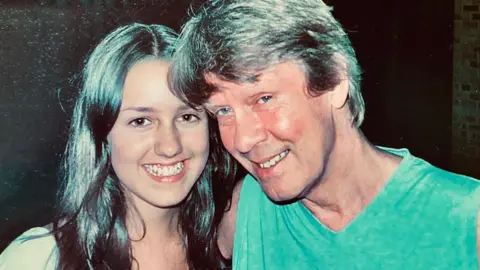 J Ancell
J Ancell
My dad Billy passed away when I was 17 and I promised him that I would find his biological family
As for me, I was granted New Zealand citizenship under "exceptional circumstances" in 2023.
Because my dad was born to unmarried parents, my familial lineage was not recognised "by descent".
That would require a change in law.
So in a personal capacity I launched a petition on behalf of other "illegitimate" children.
After an anxious wait, the Select Committee recommended to the government that, when reviewing citizenship policy, it amend Section 9 of the Citizenship Act 1977.
Understanding my ancestry was never about becoming a citizen but, to me, it is a beautiful by-product that has brought me an incredible sense of identity.
.png)



